Tallulah Rendall - Interview
by John Clarkson
published: 22 / 5 / 2009
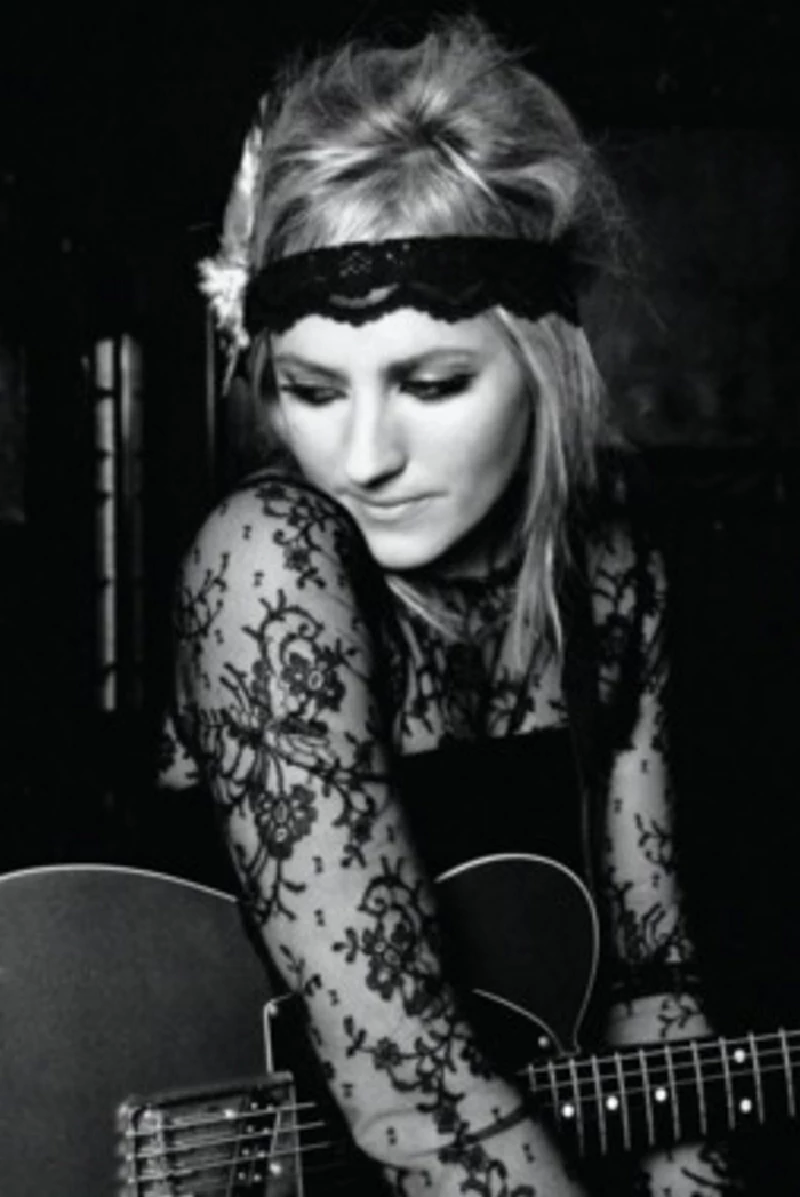
intro
John Clarkson talks to London-based singer-songwriter Tallulah Rendell, who has just released her debut album, 'Libellus', which is accompanied by a fifty page hardback book
There is not likely to be a more lavishly presented or beautifully packaged CD released this year than Tallulah Rendall's debut album, 'Libellus'. Appearing on Rendall's own Transducer Records, 'Libellus' is accompanied by a fifty page hardbook book, which finds the lyrics for each song on the album accompanied by its own painting by Devon-based artist Beshlie McKelvie. The book, a piece of art in itself, also features sleeve notes from Rendall ; gorgeous black-and-white and colour photos of both her and her band, and poems and other writings from some of the artists who have inspired Rendall such as Patti Smith, Chilean poet Pablo Neruda, German writer Hermann Hesse and French poet and philosopher Arthur Rimbaud. 'Libellus' is the debut album of half-Australian, half-British and currently London-based guitarist and pianist Rendall, who previously has released several low-key, limited edition singles and EPs and has also written soundtracks for small-budget Australian independent films. As well as composing all of its songs, Tallulah Rendall has co-produced the album with her drummer and pianist Matt Ingram and also written most of its arrangements. The album's executive producer is Marius De Vries, who has also worked with Bjork and PJ Harvey. The ten songs on 'Libellus' are equally sublime. Its tracks include Rendall's personal own favourite, the six minute 'Black Seagull', which halfway through switches direction from choppy rock number to steadily-building piano/guitar duel ; the eerie folk of 'Lost in the Morning' ; soaring Patti Smith homage 'Hope Tonight', and album closer 'Rest in Peace', an elegiac tribute to Rendall's late grandmother. In an interview with Pennyblackmusic, Tallulah Rendall spoke about 'Libellus' and its uniqueness. PB : The album takes it name from a theory described in Iris Murdoch’s ‘The Sea, The Sea’. What is that theory and in what way does this apply to the title of the album ? TR : The protagonist in 'The Sea, The Sea' talks about a Libellus as being a small book of poetry which comes to life. I just felt that that concept completely sums up this album. It started as this tiny little thing, with me and my guitar, and me multi-tracking everything in my room. Then I took the songs to the band, and they evolved further there. Then working with Marius De Vries was another whole new step. Then Beshlie Mckelvie got involved with her paintings. Then all these different photographers also became involved in taking photos for the book. Now I am doing music videos and playing festivals. It just seems to me to be this thing which was constantly growing and growing and evolving and changing. PB : At what point did you decide, rather than releasing an ordinary CD, to do the book of paintings and poetry ? TR : To be honest, I had always wanted to do that (Laughs).As soon as Beshlie got on board, that was when I knew it was practical. The whole download element of music is fantastic as it makes it really accessible, but at the same time you lose a lot with it and the ability to touch a recording. In the 60s and 70s and in the vinyl era you had with these wonderful gatefold sleeves these beautiful pieces of art work and you felt like you had something that you wanted to treasure. It was something that people had this enormous respect for. I don’t feel that people have that same respect for music that they used to. I really wanted to do something that I was fiercely proud of. It takes an enormous amount of time to record a song, to find a producer and to get the backing to do it and so on, and for something that may last just three and a half or four minutes. I felt with this album that I wanted to put it in the context of its journey and to present it in the most beautiful way and to honour it (Laughs). PB : There is an interview on your website in which you say that you want to "reclaim the songs on the album." Is that what what you also were doing by that ? TR : I think that there was an aspect of that. There was one point in which I felt quite removed from where they had first come, but I don’t really feel like that anymore because we are now playing live so much. We have done so many shows now and the way that I have arranged the band and the musicians it really feels like a great representation of the album. I feel much more immersed in it again than I did at one point when it just felt like I had been going on for so long and so many people had been involved in it that it really didn't feel like mine anymore (Laughs). PB : How did Marius De Vries become involved ? TR : He is an amazing guy. I wrote some film music for an Australian film producer call Rebel Penfold-Russell, who produced ‘Priscilla : Queen of the Desert’. When I spoke to her about wanting to record this album ,she offered to become an investor in it if I would work with Marius. She, therefore, put the call in. Marius came down to a couple of gigs and then we started working together. There were songs that he felt were ready to go and there were other songs that he thought I needed to put a little more time and energy into the lyrics and the melody, just to get the best out of them. My attention to detail when I fist started writing was not what it is now. Marius got me to be much more meticulous about each song and to really make sure that everything to do with the melody and the words was the best that it could be. Marius and I also spent a lot of time bouncing ideas back and forth. I would come up with an idea and then he would come up with an idea or vice versa. That was the most exciting part for me really. Marius has worked with some unbelievable singers and his knowledge of the female voice is absolutely incredible. No one has ever pushed me as much as he did. PB : You had never produced or arranged or even written a full-length album before. Was doing so easier or more difficult than you thought that it would be ? TR : It was so much harder (Laughs). I had absolutely no idea about how to go about the basic things like budgeting studio time. Marius works in Logik, and I work in Pro Tools and the studio I recorded most of the album in is Pro Tools. We had to keep moving the files from one studio to another and then back again. We moved backwards and forwards between our two studios seven times and had to convert and co-ordinate the files each time. I had no idea when I started that we would have to do that. There were all sorts of basic things that were a real fast learning curve. I didn’t know either as well how when I started how I wanted the record to sound. I didn’t know if I wanted to do a completely live and raw version or if I wanted to go down Marius’ root as we eventually did and end up with something more polished. PB : Did you ever think about looking for a label to release it or did you decide from the beginning that you want to self-release it ? TR : There wasn’t a whole bunch of people saying, "Let’s do it ! Let’s do it !" I am a firm believer in just getting on with things. Many friends of mine, in fact every single person that I know that is involved in music who has been signed to a label, be it a major or a small one, has had massive, massive problems with getting an album released. If a label came up and said, "Oh, we want to sign you up. We want to get you on board", it is not that I would object to doing that. It is just that nothing has come along so far that has made me want to go down that course. The biggest thing about running your own label is that you don’t have a big marketing budget behind you. I do get frustrated by that and feel sometimes that I am battling upstream a lot. At the same time though I do have complete creative control and I have done something that I might have never been able to have done otherwise. PB : The songs on 'Libellus' are often melancholic and deal with different issues, but they all seem to end on a note of hope. TR : I am really glad that you see that because that is really what they are about. I am not a negative person at all. I kind of say things as they are and if I am happy I am happy and if I am sad I am sad. I always know, however, hard things are that I am going to get through it because I always have done before. I really wanted this album to have that element of hope. I have never really wanted to write a tortured artist woe-is-me album. It is really not the way I am in my heart. 'Lost in the Morning' is all about that. I was having a really hard time. I was really ill. I had a kind of vocal viral thing in my throat and I had been told I wasn’t allowed to sing for two months, so I was really in a low spot. I used to go up on Hampstead Heath and I used to feel really shit and then come back feeling a lot better. There was a little kind of ray of optimism there. No matter how bad things are, I can always find a little glimmer of hope. I feel really, really strongly about looking forward and being optimistic. Some pretty horrible things have happened to me in my life and it would have been very easy to dwell on them and to get on stuck on them. I like though to be as kind and as positive as I can. There is this real thing about inspiring other people as well. There are so many people that really inspire me and I wanted to be part of that framework, that little butterfly effect of keeping things moving. PB : On the subject of inspiring people and being inspired, Patti Smith seems to have been something of a muse on this album. ‘Hope Tonight’ was written after seeing her live, wasn't it ? TR : This friend of mine took me. It was really sweet. He called me up and said, "You have got to meet me outside the Tate. We are going to see something", so I walked up there and we went into this tiny little auditorium which only takes about a hundred people. There were only about forty people there, and she was playing this unlisted solo gig for Robert Mapplethorpe. I still have no idea how my friend heard about it. I had always been a massive Patti Smith fan. I had always loved ‘Horses’ and I used to love doing covers of ‘Free Money’ and ‘Gloria’. I just loved her spirit, but seeing her live it just completely and utterly compounded everything that I had always thought about her. At the time I hadn’t really written much lyric-writing for a while.I go through these weird stages . Sometimes I will write loads of lyrics. There will be loads of poems and at other times there will be loads of music and no poems. It was one of those times in which I was writing lots of music and no words. I wasn't feeling inspired by London or life and suddenly it was like, "I feel like writing." Going to see her it was like having something explode (Laughs). PB : Final question. After the album is released, what will you do next ? TR : I have got loads of festivals and gigs coming up. British Airways have just chosen my album to be on their in-flight entertainment which is amazing. What I would really like to do is keep touring until about October and then maybe take a month’s break because I have been working solidly on this album for the last two years before going to Sydney to start getting the next album together. In my mind I would like to start recording the next album in 2010, You never know how long it is going to take, but I would hope to have something out by the end of next year. That is the plan for the next few months though, touring and then writing and recording and starting the whole process all over again (Laughs). PB : Thank you.
Band Links:-
https://www.facebook.com/tallulahrendallhttp://www.tallulahrendall.com/
https://twitter.com/tallulahrendall
Picture Gallery:-
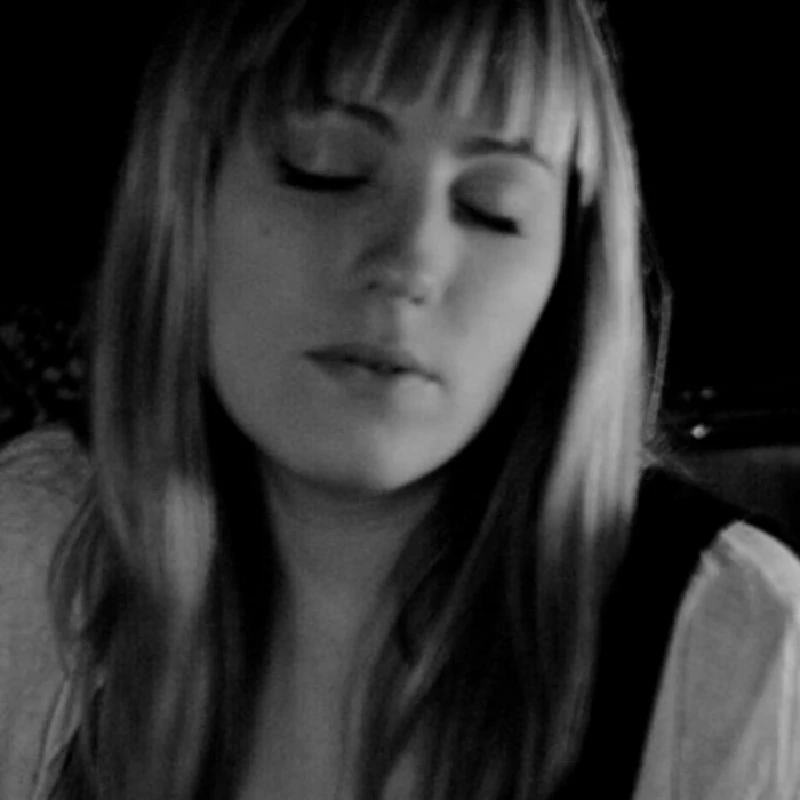
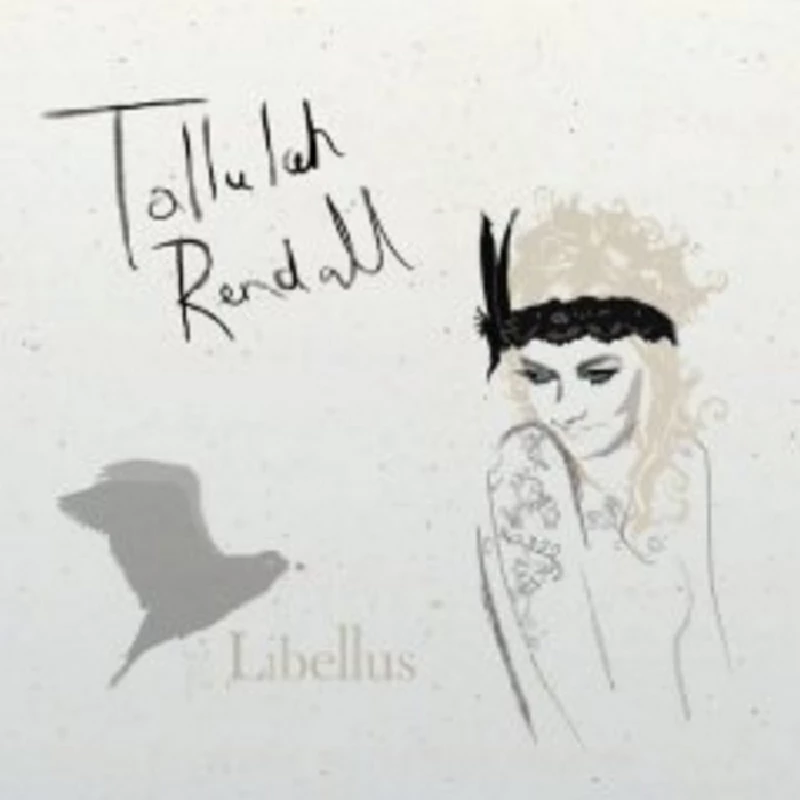
favourite album |
|
Addiction (2009) |
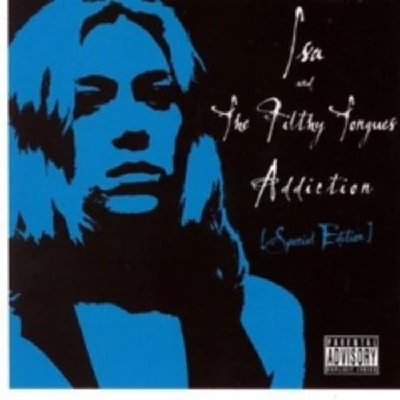
|
| John Clarkson looks at Edinburgh-based post-punk act Isa and the Filthy Tongues debut album, 'Addiction', which has just been re-released in an extended edition |
soundcloud
reviews |
|
The Banshee and the Moon (2014) |
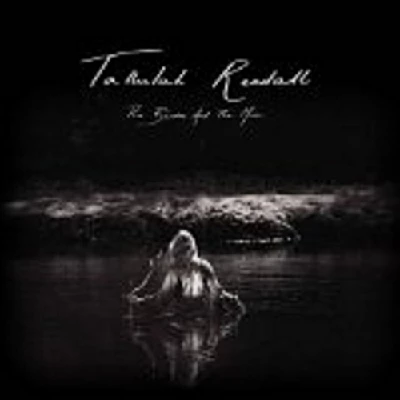
|
| Evocative and lavish third album from singer-songwriter Tallulah Rendall, which, appearing with a book of black and white photographs, focuses on the need to escape from everyday reality and existence |
most viewed articles
current edition
Carl Ewens - David Bowie 1964 to 1982 On Track: Every Album, Every SongBathers - Photoscapes 1
Colin Blunstone - Thalia Hall, Chicago, 16/7/2025
John McKay - Interview
Armory Show - Interview with Richard Jobson
Visor Fest - Valencia, Spain, 26/9/2025...27/9/2025
Billie Eilish - O2 Arena, London, 10/7/2025
Bathers - Photoscapes 2
Editorial - July 2025
Sir Tim Rice - Interview
previous editions
Heavenly - P.U.N.K. Girl EPOasis - Oasis, Earl's Court, London, 1995
Trudie Myerscough-Harris - Interview
Pixies - Ten Songs That Made Me Love...
Simon Heavisides - Destiny Stopped Screaming: The Life and Times of Adrian Borland
Beautiful South - Ten Songs That Made Me Love...
Prolapse - Interview
Boomtown Rats - Ten Songs That Made Me Love....
Blues and Gospel Train - Manchester, 7th May 1964
Donovan - Ten Songs That Made Me Love...
most viewed reviews
current edition
Amy Macdonald - Is This What You've Been Waiting For?Sick Man of Europe - The Sick Man of Europe
Alice Cooper - The Revenge of Alice Cooper
Phew, Erika Kobayashi,, Dieter Moebius - Radium Girls
Lucy Spraggan - Other Sides of the Moon
Blueboy - 2
Cynthia Erivo - I Forgive You
Davey Woodward - Mumbo in the Jumbo
Lapsley - I'm a Hurricane, I'm a Woman In Love
Philip Jeays - Victoria
Pennyblackmusic Regular Contributors
Adrian Janes
Amanda J. Window
Andrew Twambley
Anthony Dhanendran
Benjamin Howarth
Cila Warncke
Daniel Cressey
Darren Aston
Dastardly
Dave Goodwin
Denzil Watson
Dominic B. Simpson
Eoghan Lyng
Fiona Hutchings
Harry Sherriff
Helen Tipping
Jamie Rowland
John Clarkson
Julie Cruickshank
Kimberly Bright
Lisa Torem
Maarten Schiethart